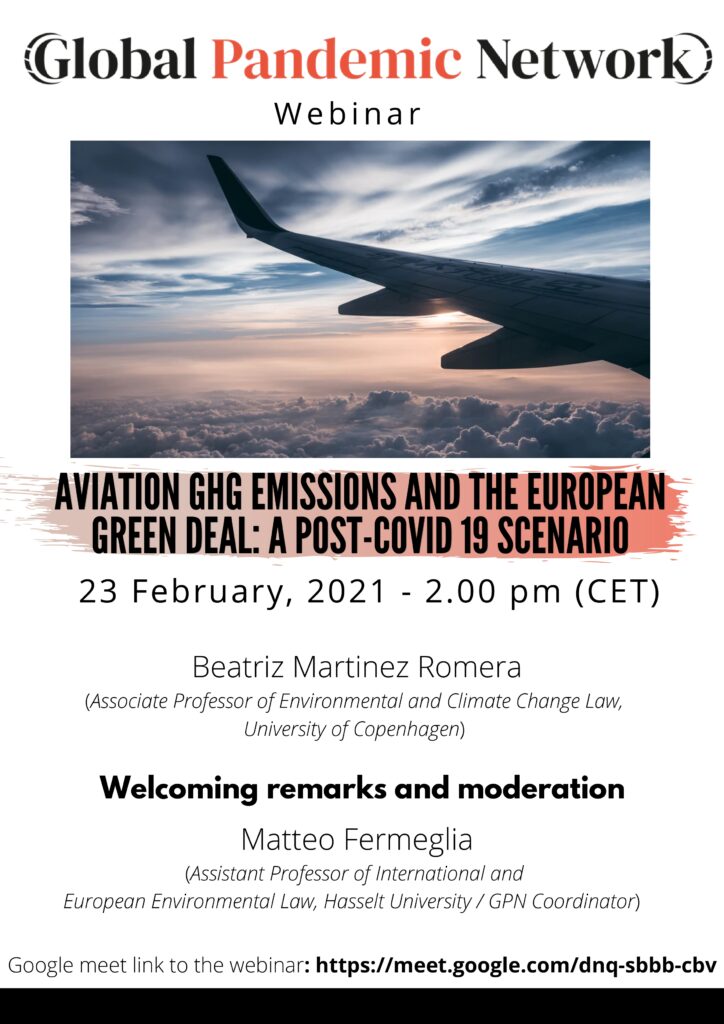23 FEBRUARY 2021 – 2 p.m. (CET)
Aviation activities, and concomitant greenhouse gas (GHG) emissions, have decreased drastically (60-80% depending on estimates) in the last year due to the COVID-19 outbreak. However, meaningful longer-term reductions for the aviation sector are needed to achieve the temperature goals set in the Paris Agreement, and the EU climate pledges. Although GHG emissions from aviation activities are included in the EU Emission Trading System (EU ETS) (Directive 2008/101/EC), aircraft operators of international flights arriving and departing from the EU have been ‘temporarily’ exempted of the obligations posed by the scheme (Decision No 377/2013/EU, Regulation
(EU) No 421/2014, Regulation (EU) 2017/2392). The adoption of a global mechanism, the Carbon Offsetting and Reduction Scheme for International Aviation (CORSIA), by the International Civil Aviation Organization in 2016
has left a number of issues unaddressed regarding the interplay with the EU ETS, and EU climate ambition for the sector. In the context of the European Green Deal, the EU ETS, including aviation activities, is under review. Specifically, how to implement CORSIA in a way that is consistent with EU targets, and how to restrict free allowances (by increasing the share of allowances auctioned) for aircraft operators. This article analyses the legal implications of this review and its potential for a sustainable post-COVID-19 recovery for aviation

Link : https://meet.google.com/dnq-sbbb-cbv
(Associate Professor of Environmental and Climate Change Law,
University of Copenhagen)
